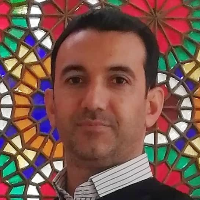The Effect of Different Nocturnal Sleep Patterns on Shooting Accuracy, Reaction Time and Cognitive Function of Military Students
The present study aimed to investigate the effect of different nocturnal sleep patterns on shooting accuracy, reaction time, and cognitive function in military college students.
The study was conducted on 48 students of Air Defense Officer University in Tehran (age; 20.7±1.15). Subjects were randomly divided into four groups: guarding post 1 (6-8, 12-14, 18-20, and 24-2), guarding post 2 (8-10, 14-16, 20-24, 2-4), guarding post 3 (10-12, 16-18, 22-24, 4-6), and control (no guarding post). After the end of the last guarding post, cognitive function (Stroop test); accuracy of shooting (10-meter air pistol shooting); simple, and choice-reaction time (Deary-Liewald test) were assessed in all groups. Data were analyzed using one-way analysis of variance (ANOVA) and Tukey or Dunnet-3 post hoc tests.
The results showed that compared to the control group, the shooting accuracy was significantly reduced in the subjects of the guarding post 1 (P=0.002) and guarding post 2 (P=0.001) groups. Moreover, compared to the control group, the guarding post 2 (P=0.001) and the guarding post 3 (P=0.001) groups, had poorer performance in the simple reaction test. Additionally, subjects in the guarding post 2 group had poorer performance in choice-reaction time and cognitive function compared to the control group (P=0.001).
The nocturnal sleep pattern has a significant effect on cognitive function, reaction time, and shooting accuracy of military forces, particularly sleep deprivation caused by guarding post 2 has the most deleterious effect on these variables. Hence, it seems that more attention should be given to the rest after guarding post 2 in the military forces to achieve optimal performance.
-
Prevalence of Body Weight Misperception Among Female University Students and its Relationship with Anthropometric Indices: A Concept for Overweight and Obesity Management
Maryam Khalesi *, Esmail Nasiri,
Journal of Sabzevar University of Medical Sciences, -
Investigating the Relationship between Physical Activity and Anthropometric Indicators with Sleep Quality in Military Students
Leila Afsari, *, Maryam Khalesi
Journal of Military Caring Sciences,


